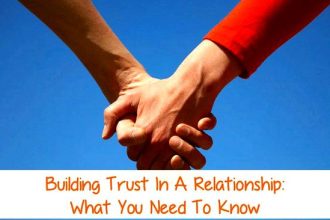
1. Reflecting on Past Hurt
Journalism can never be silent: that is its greatest virtue and its greatest fault.
Henry Anatole Grunwald – Journalist
To rebuild trust in yourself and others, it is important to reflect on past hurt. Take the time to acknowledge and process any pain or betrayal you have experienced in the past. This may involve journaling, therapy, or talking to a trusted friend or loved one. By understanding how past experiences have impacted your ability to trust, you can begin to heal and move forward. Remember that healing is a journey, and it is okay to take your time. Allow yourself to feel the emotions that come up, and be gentle with yourself as you work through them. As you reflect on past hurt, you may also gain insight into patterns or behaviors that have contributed to trust issues. Use this knowledge to make positive changes and set boundaries that protect your emotional well-being. By facing past hurt head-on, you can start to rebuild trust in yourself and others.
2. Understanding the Root of Trust Issues
Trust issues can stem from various sources, including past experiences, childhood upbringing, and personal insecurities. It is important to identify the root cause of your trust issues in order to effectively address them. Reflect on your past relationships and interactions to pinpoint any patterns or triggers that may have contributed to your lack of trust. Additionally, consider how your upbringing and past experiences have shaped your beliefs about trust and relationships.
By understanding the root of your trust issues, you can begin to work through them and rebuild trust in yourself and others. Therapy, self-reflection, and open communication with loved ones can help you navigate through these issues and develop healthier patterns of trust. Remember that rebuilding trust is a process that takes time and effort, but with patience and self-awareness, it is possible to overcome trust issues and cultivate fulfilling relationships based on mutual trust and respect.
3. Embracing Vulnerability and Openness
In order to rebuild trust in yourself and others, it is essential to embrace vulnerability and openness. Being vulnerable means allowing yourself to be honest and transparent about your feelings, fears, and desires. It requires courage to let down your guard and show your true self to others. By being vulnerable, you can create deeper connections with those around you and foster a sense of trust.
Openness is also key to rebuilding trust. This means being willing to listen to others, communicate openly, and be receptive to feedback. When you are open and approachable, others are more likely to trust you and feel comfortable sharing their thoughts and feelings with you.
Both vulnerability and openness require a willingness to take risks and step outside of your comfort zone. It can be scary to be vulnerable or to open up to others, but the rewards are worth it. When you are able to embrace vulnerability and openness, you will find that trust in yourself and in others begins to grow. By being authentic and genuine in your interactions, you can create strong and lasting relationships built on trust and mutual respect.
4. Communicating Honestly and Transparently
There is no greater agony than bearing an untold story inside you.
Maya Angelou – Author
Effective communication is key to rebuilding trust in yourself and others. When it comes to dating and love, being honest and transparent can help foster healthy and strong relationships.
One way to communicate honestly is to express your thoughts and feelings openly. Share your concerns, fears, and desires with your partner in a clear and respectful manner. Avoid keeping secrets or withholding information, as this can lead to distrust.

Transparency is also important in rebuilding trust. Be open about your past experiences, insecurities, and mistakes. By being transparent, you show your willingness to be vulnerable and accountable for your actions.
Listen actively to your partner and validate their feelings. Communication is a two-way street, so make sure to give them the space to express themselves without judgment. Practice empathy and understanding to build a deeper connection.
Overall, honest and transparent communication can help you and your partner navigate challenges, resolve conflicts, and strengthen your bond. Trust is built on a foundation of openness and authenticity, so make it a priority in your relationships.
5. Setting Boundaries and Expectations
Setting boundaries and expectations is crucial in rebuilding trust in yourself and others in the dating and love realm. By clearly defining your limits and communicating them effectively, you establish a sense of security and respect in your relationships. It is important to know what you are comfortable with and what you are not, and to communicate this to your partner.
When setting boundaries, be firm but also flexible. Understand that boundaries can evolve as your relationship progresses, and it is okay to adjust them accordingly. By setting clear expectations, you create a mutual understanding of each other’s needs and desires, which can help prevent misunderstandings and conflicts.
Remember that setting boundaries is not about controlling your partner or restricting their freedom. It is about creating a healthy and respectful dynamic that allows both individuals to feel safe and valued. By setting boundaries and expectations, you can rebuild trust in yourself and others, fostering a strong and fulfilling relationship based on honesty and mutual respect.
6. Practicing Forgiveness and Empathy

Forgiveness and empathy are essential components in rebuilding trust in yourself and others. When you forgive someone, you are not necessarily condoning their actions, but rather releasing yourself from the negative emotions that can weigh you down. By practicing forgiveness, you can let go of grudges and resentments, which can ultimately help you move forward in your relationships.
Good writing is clear thinking made visible.
William Wheeler – Screenwriter
Empathy is another key aspect of rebuilding trust. By putting yourself in someone else’s shoes, you can better understand their perspective and feelings. This can help you foster a deeper connection with others and strengthen your relationships. When you show empathy towards others, you are showing that you care and are willing to listen and understand.
Incorporating forgiveness and empathy into your daily life can help you heal from past hurts and build stronger, more trusting relationships. Remember, rebuilding trust takes time and effort, but with practice and patience, you can create a more positive and fulfilling life for yourself and those around you.





